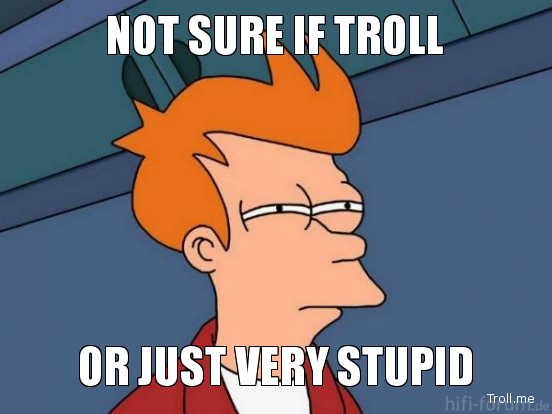As we all know, the internet is a breeding ground for malicious thoughts and actions. This isn't a new concept, but it still seems to shock people when they hear about the terrible things people do/post/talk about while online. These things aren't aspects that would come up in normal face to face conversation, nor would they be considered appropriate or acceptable by the community as a whole.
I won't be delving too deeply into the darkness that awaits on the other side of the monitor, but I will cover some of the more basic, everyday assholes one can expect to encounter in a normal trip to the youtube comment section. This article from Psychology Today talks about, you guessed it, the psychological aspects behind the internets most hated persons... The trolls! If you've never heard of that word before, it refers to someone who comes into a conversation or discussion and posts comments, usually under a throwaway username, that are meant to disrupt the conversation or upset those partaking in said conversation. These are some decent examples of harmless trolling. Now, the article from above goes on to talk about a Canadian research survey in which the researchers discovered that those exhibiting extraordinarily high "Dark Tetrad" scores, or high scores in narcissism, Machiavellianism, psychopathy, and sadism, were more likely to be involved in and enjoy internet trolling activities. The author of the study goes on to say "Both trolls and sadists feel sadistic glee at the distress of others. Sadists just want to have fun ... and the Internet is their playground!"
It even gives two measly tips to remember:
1. Trolls are some truly difficult people
2. It is your suffering that brings them pleasure, so the best thing you can do is ignore them.
Their guide says basically the same things, like how these trolls come from the depths of the internet and how they get satisfaction out of making the average user upset or enraged and that there isn't a way to truly combat them because they don't act or feel like a normal person.
It also talks a little about "sea-lioning," which, as seen above, is an overly polite yet insistent pest. Their actions make the target enraged which, in turn, makes the "sea-lion" the victim of the situation.
The article wraps up with the advice of just not responding to trolls. This will make them wonder if either their insult wasn't seen or if it wasn't even worth a reply. So in the end, the only action you should take against these internet annoyances in no action what so ever. It might go against your beliefs to not stand up for yourself while wild insults are hurled repeatedly at you, but there isn't typically any real threat of physical harm from these pesky mosquitos, just an annoying buzz and the occasional bite that fades rather quickly.

No comments:
Post a Comment